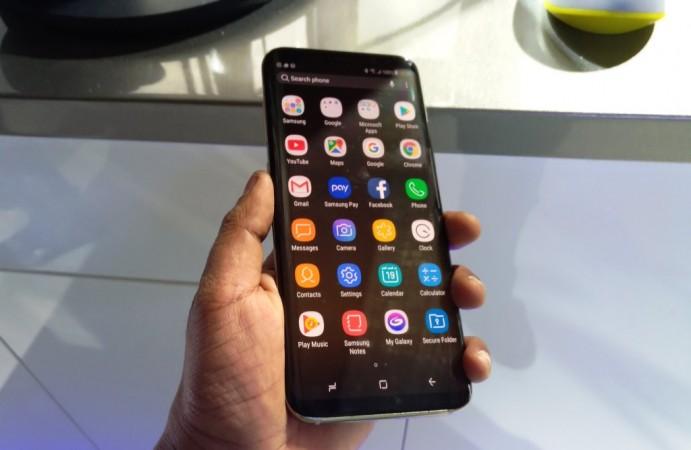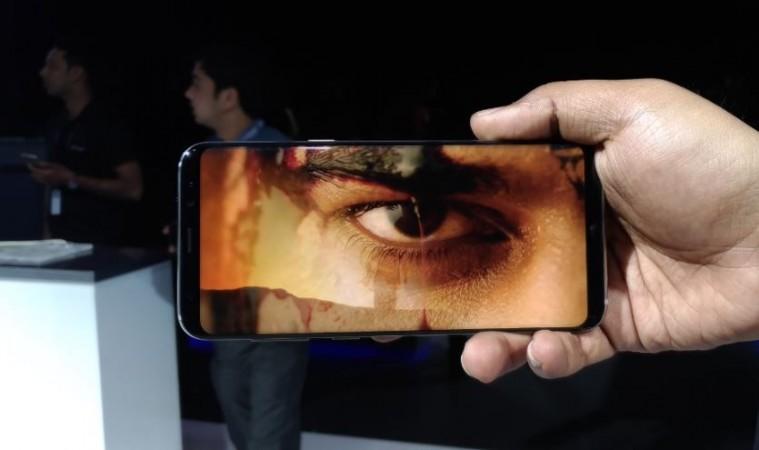
Samsung probably never imagined a bursting phone in its product line, but it happened. Samsung probably also never thought of recalling a flagship device globally, but it had to. What everyone expected the company to deliver next was a flawless product that would force consumers to forget the tainted past and embrace brand Samsung, once again. The new Galaxy S8 and Galaxy S8+ apparently have the potential to revive the company's fortunes, but a series of unwanted issues since the devices' launch last month have made it difficult for Samsung to make an ideal comeback.
In addition to what looks like a growing list of issues related to Samsung's latest smartphone offering, some Galaxy S8 owners have complained about the handsets' wireless charging function. According to them, Samsung's Fast Charging pad has failed to charge their devices while some of the company's older charging pads are also not working. Although there seems to be a temporary fix that involves using a non-Samsung Adaptive Fast Charger with older pads, it allows users to charge their devices at a much slower speed.
While Samsung is yet to comment on the issue, it could be the company's calculated move to prevent wireless fast charging from working on older pads to avoid any issues with the Galaxy S8's battery. It's perfectly fine to play safe for a company like Samsung, whose wounds from a recent costly product crisis are still fresh.
However, the company should make that clear to consumers so that they don't keep guessing what's wrong. And, if the anomaly is indeed caused by a software bug, then a fix must be rolled out in no time, before more people get their hands on the new handsets.
The wireless charging issue followed another Galaxy S8 related glitch that caused excessive reddish tints on the screens of some Galaxy S8 and Galaxy S8+ handsets. Samsung responded to the issue saying that it had nothing to do with the phone's hardware, and that it would roll out a software upgrade to fix the problem. The company was even ready to replace the affected handsets with new ones.

Although renowned product review publication Consumer Reports has downplayed the issue, saying a reddish tint on the Galaxy S8's display is not as controversial as it looks like, it definitely doesn't look good for a company which is trying hard to win back its lost glory.
The reddish tint issue surfaced only a few days after Samsung was criticized to launch the Galaxy S8 handsets with a half-baked Bixby, which was significantly different from what the company had announced earlier. At launch, the Galaxy S8 was carrying a Bixby which was lacking support for voice commands, one of the most vital features Samsung boasted about when it first unveiled the Galaxy S8.
A crippled Bixby was the proof that Samsung was desperate to re-enter the voice assistant fray after the S-Voice failed to get any traction. While Bixby still needs to go a long way before it's fully developed, Samsung depends a lot on its success to catch up with other players like Apple, Amazon and Microsoft in the growing AI sector. But, while longing for a far-off future, the company apparently ended up compromising with one of its flag bearers of the year.
All these issues may not be as grave as the one that triggered the recall of the ill-fated Galaxy Note 7, which cost the South Korean tech behemoth billions of dollars. But they do echo a fiasco that still haunts the company.
Samsung was under so much pressure that it had to "renew its commitment to safety" by developing strict quality assurance protocols across its entire development process. And somehow people started to believe that the Galaxy Note 7 chapter will have a lasting impact on Samsung's future products.
If the new Galaxy S8 and Galaxy S8+ continue to encounter issues -- no matter how big or small they are -- consumers' trust on Samsung will go for a toss.















